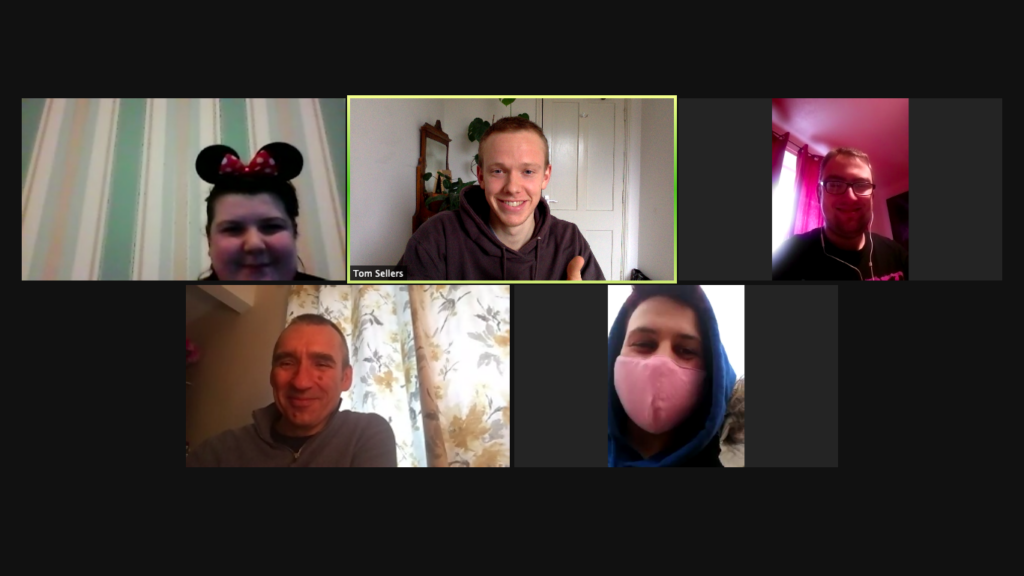
Whether you’re organising the family holiday (I wish), running the local choir, or in my case, a social enterprise, there’s simply no alternative.
Doing so isn’t easy or quick. By definition, more people means more time. Additionally, many people in my situation are lone-wolves and it might not come naturally to us. We have an idea and before we know it, we’re a busy ‘social entrepreneur’ running a business. This is exactly what happened in 2013 and for two and half years it remained just me and my echo.
Recalling the tough winters without an office, the tougher ones without personal support or the solace of a plurality of views, I spent my time ‘doing’ instead of thinking. In hindsight and without knowing it was not the wrong thing to be doing, I was finessing and iterating an idea that seven years on we’re still finessing, but is bloody good. But I was doing it without input from others. At The School for Social Entrepreneurs I’d learned of those setting up their business with a partner or friend who shared a passion. All too often things had gone a little awry and my envy dissipated and the self-reliance felt vindicated.
With no particular ambitions to be a consultant or sole trader, I knew we’d have to grow the team to grow our impact. Lucky as I am to have a quiet confidence in my ability to make fairly sensible decisions, it seems unlikely that I get it right all the time. Sense checking my decisions and getting new ideas are reason enough for involving more views. This in turn requires us to be comfortable with dissenting opinions and to have the empathy to appreciate someone else’s truth.
Everyone remembers their first ‘hire’. Alex came bouncing in with passion, commitment and phenomenal spreadsheet skills. Of course I’d managed people before, but not in a business of two that I’d created. This time it felt like I was giving away 50% of my power. That I’m a control freak probably in large part comes with the lone-wolf entrepreneur territory. This isn’t always a bad trait either – it results in an eye for quality and standards.
The desire for a flat organisational structure meant that Alex wasn’t my junior in an obvious sense. That first hire wasn’t just a second voice, they had to be an equal voice. Nonetheless her very presence meant two big things. It meant that decisions I made didn’t just impact on me and that I’d have to figure out how to meaningfully involve her.
In our sector this comes up a lot with regards people with ‘lived experience’, in our case of homelessness, having an influence on what we do and ultimately making us a better business. There is some brilliant practice around, not least among housing associations, that often feels overlooked. In the private sector it comes up a lot too – packaged as employee engagement.
Employee engagement and ‘user voice’ (a term I loathe) are two sides of the same coin. It is because we are founded on equity, that this feels right. Much as our sector likes to parcel people up and label them, whether employees, tenants or those that benefit from our service, they are people deserving of equal voice, influence and respect.
My challenge as other team members arrived in 2017 was how to make this more than simple bonhomie, going for a coffee and intermittent listening. It needs to become something formalised, but not so formalised that we wrap ourselves up in ‘employee engagement’ policies.
Policies did of course start to appear (we now have 34). As a business grows its infrastructure this is necessary to keep people safe and working life fair. They are written with all our people and values in mind. I can’t remember who said it to me first in my career, but the guiding principle for our communications is that we’d never say or write anything that I wouldn’t be totally happy sharing externally without edit or redaction.
As we recruit out eighth team member we will also turn eight this year. Gaining people’s voice and influence when small is relatively easy. As we grow, greater clarity and total honesty is needed on what is a consultation and co-production with opportunity to influence and what isn’t.
The principle of equality of voice is passionately true with our own Your Own Place Advisory Board (YOPAB), a group of people with lived experience that have flourished under Tom’s compassionate, gentle and honest approach to their involvement.
It is too easy to ask simply for opinions because in reality you’ve already made a decision in your head. It’s so much harder to leave the sheet of paper blank and give free reign to ideas. Harder still to implement them and let people know that it was THEIR idea and not yours.
Acutely aware of just how narrow my life experience has been, as I age I have never been more aware of how little I have lived and how much we have to gain by involving others in every aspect of influence and decision-making. Another argument for a broad diversity of voices. Whenever I am making a decision I ask myself ‘what is the likelihood that this only impacts on me and that someone else doesn’t have a good idea?’ Generally it’s pretty low and a phone-call to the team ALWAYS confirms this and is worth the time.
The podcast below is what happens when you ask your people to come up with content for a business Handbook.
I wouldn’t have thought of that.

